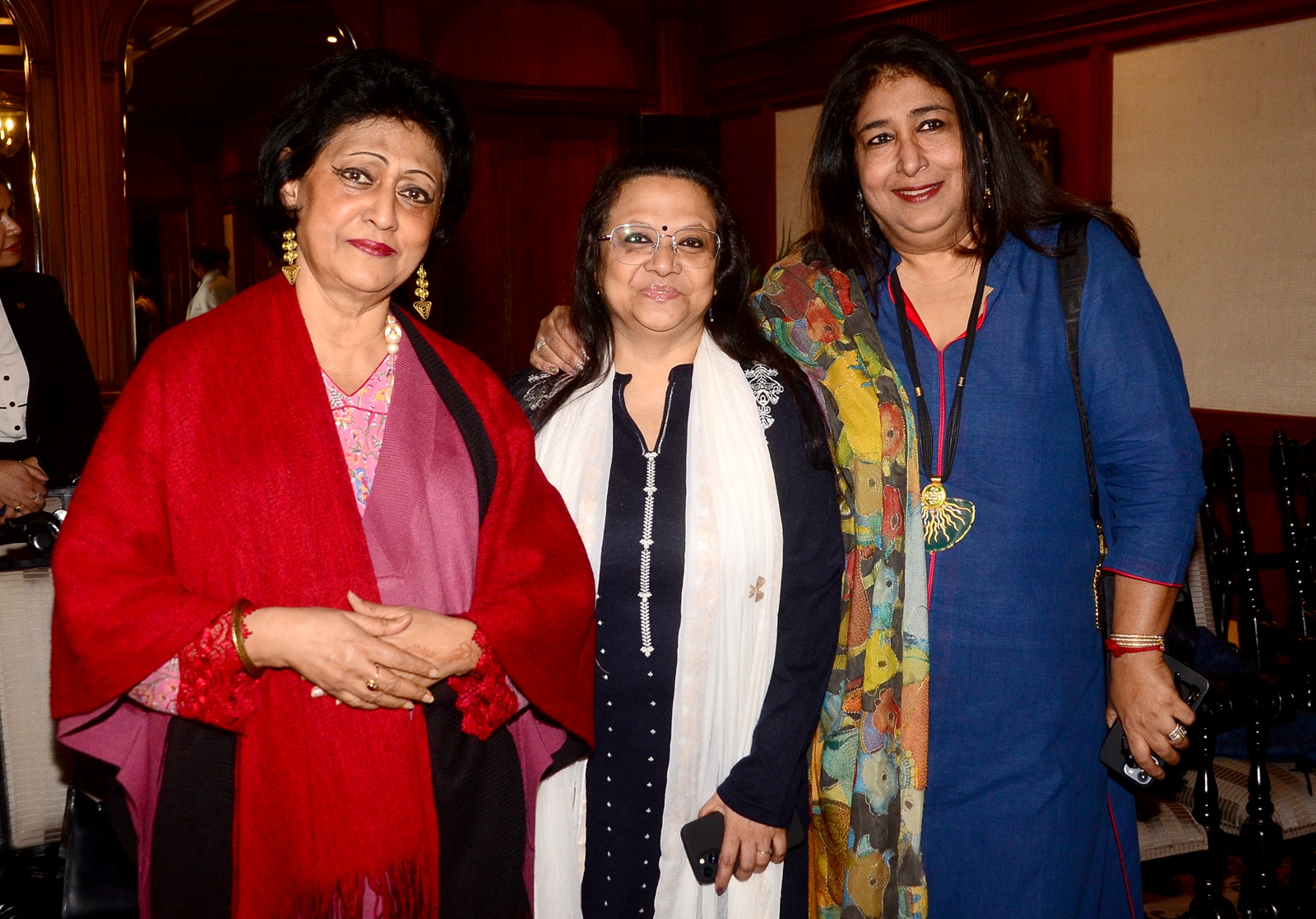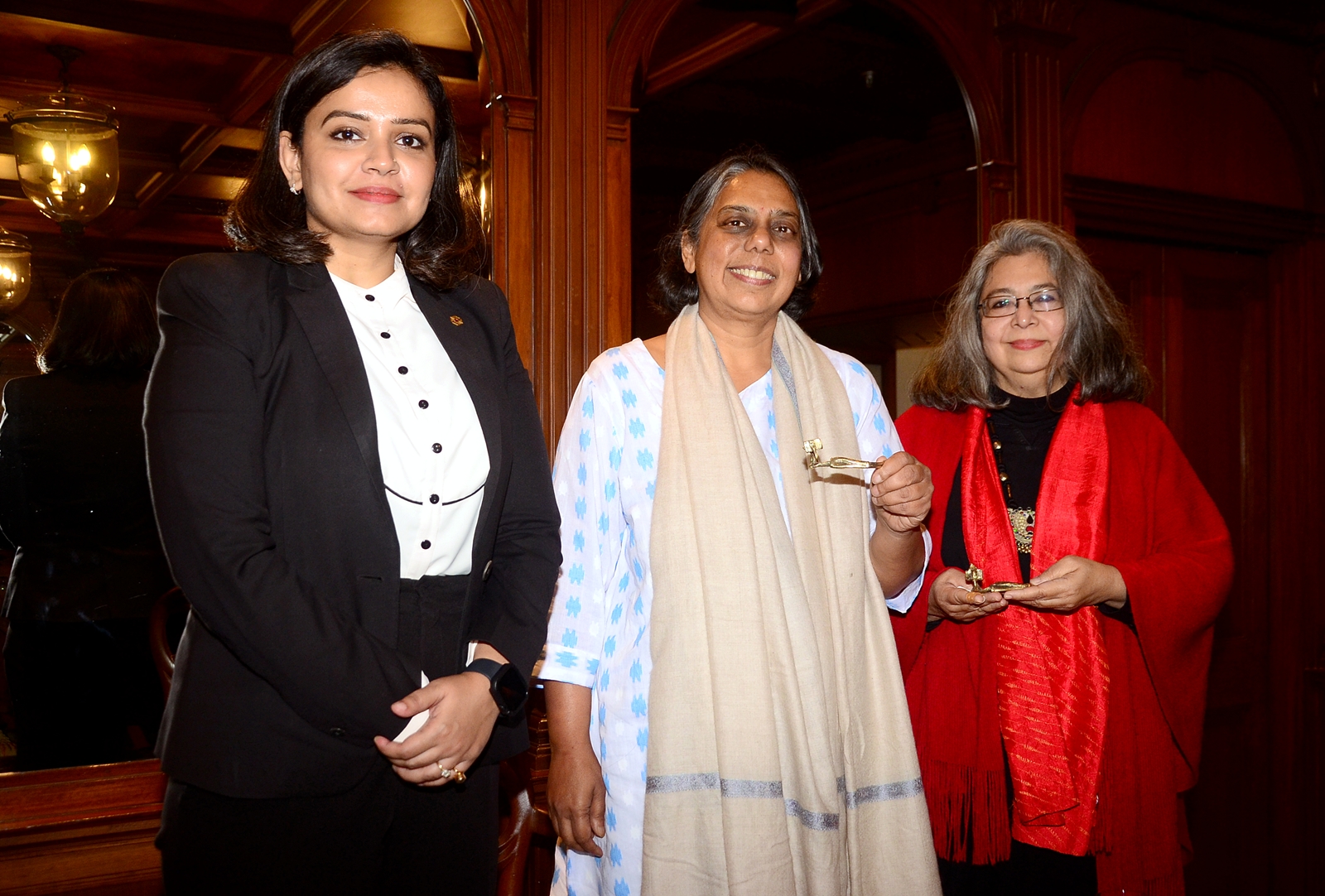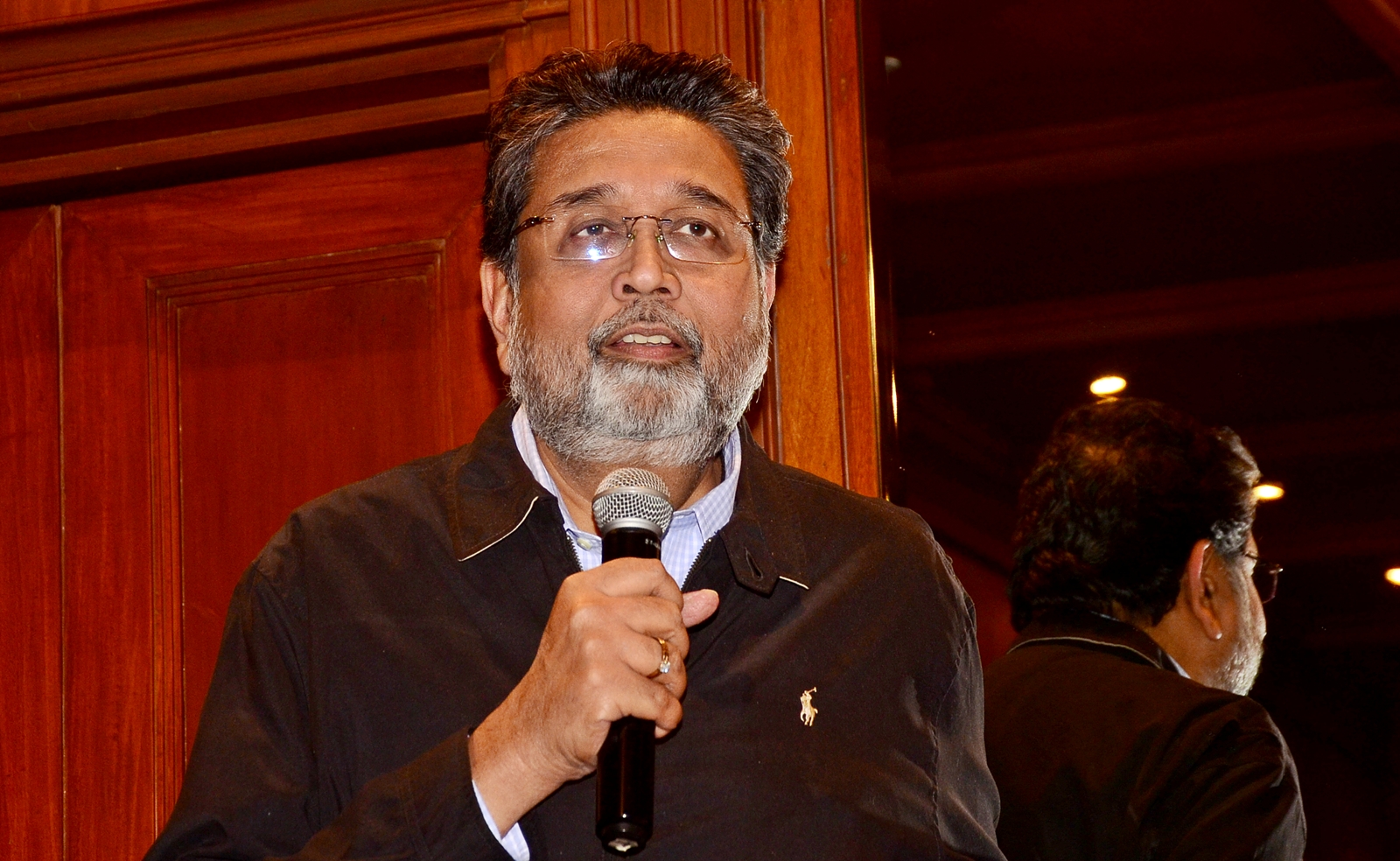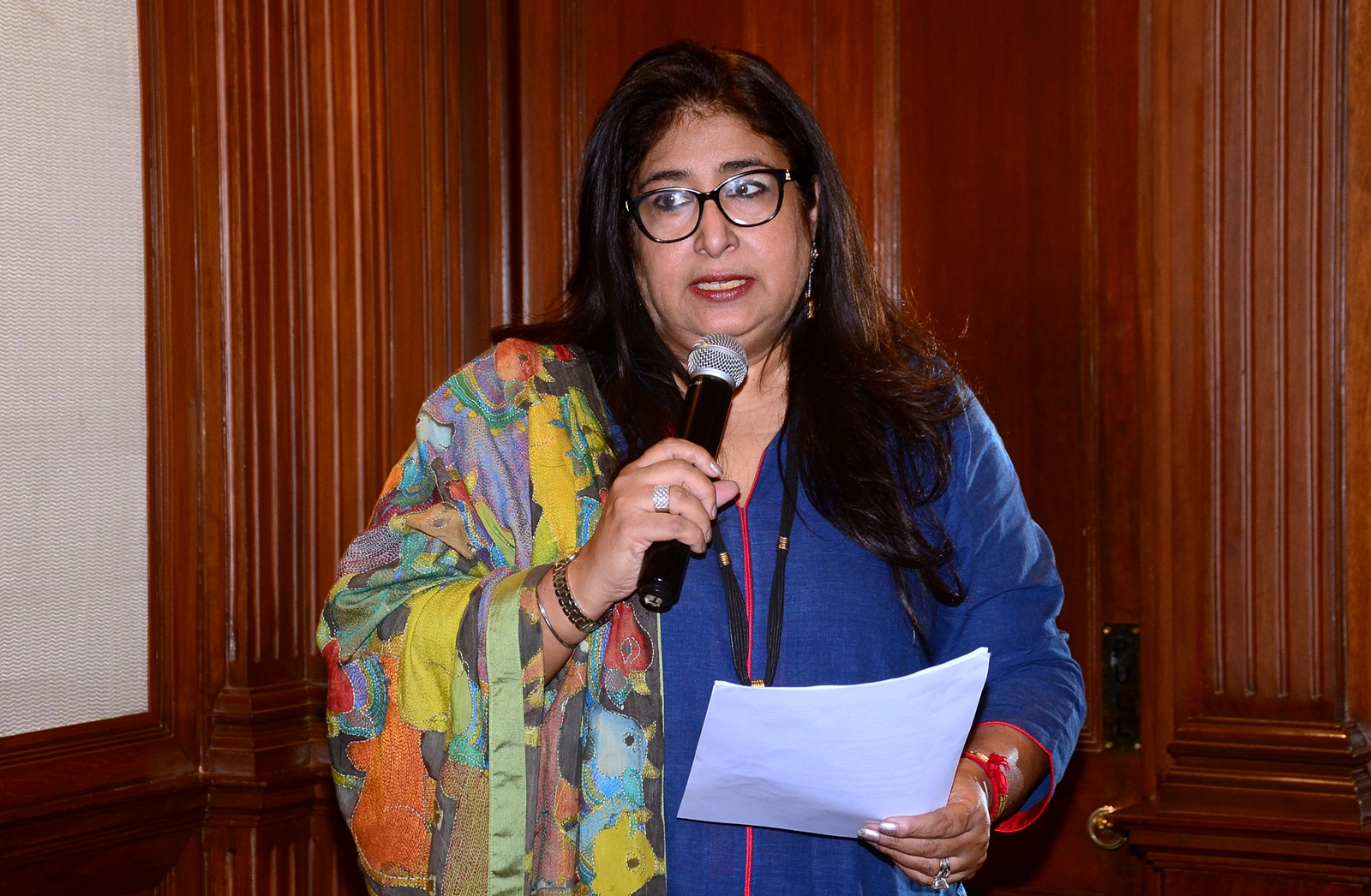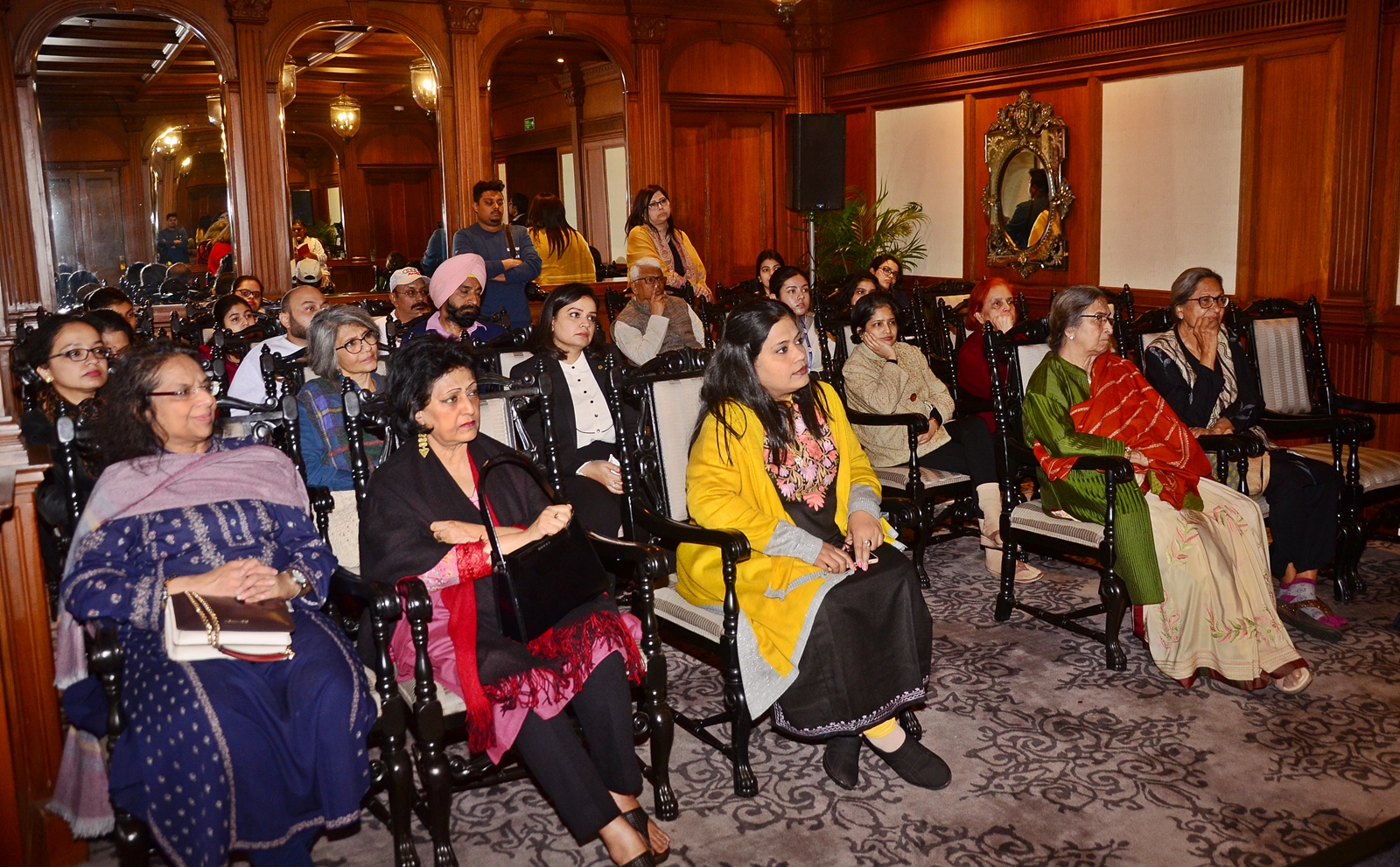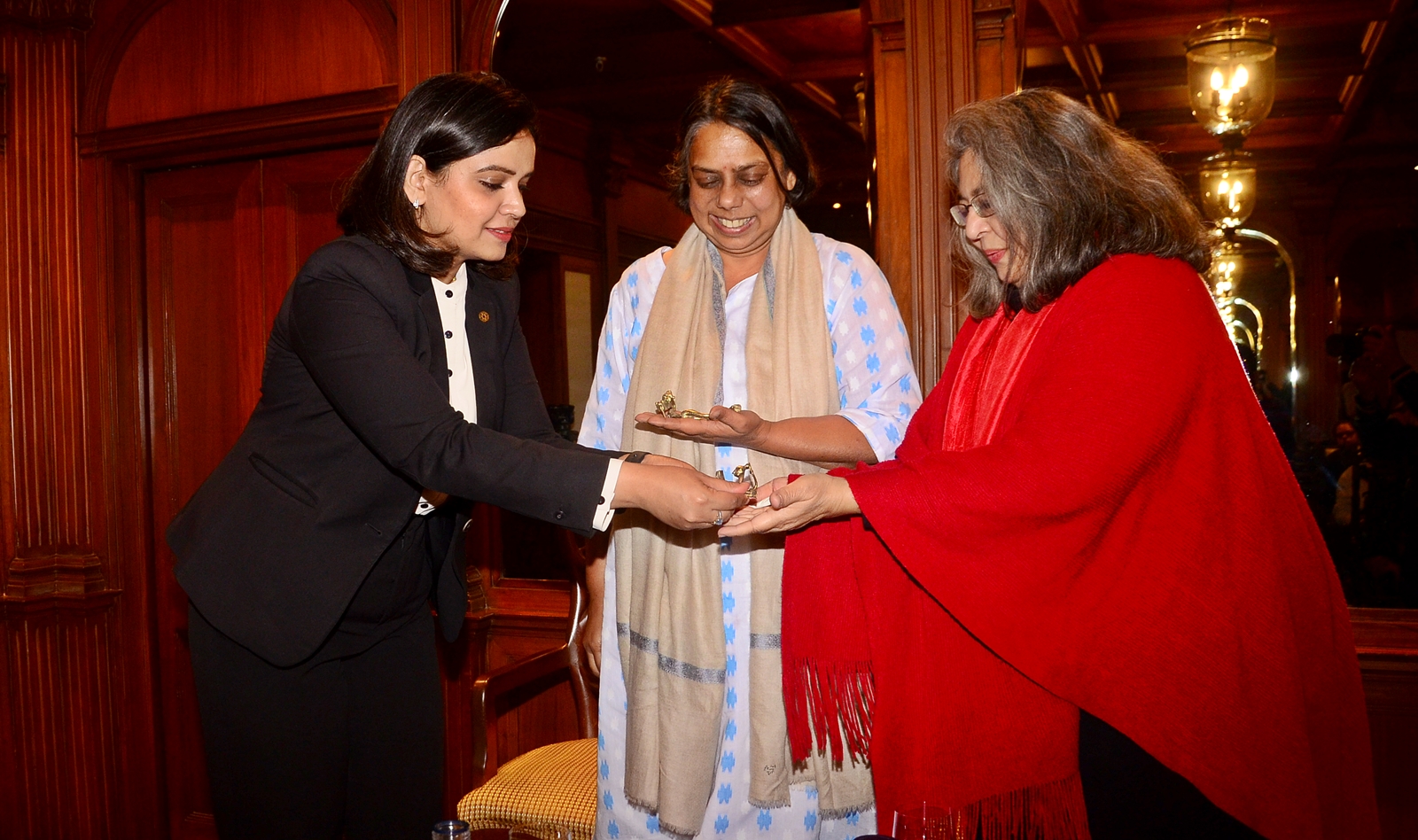At a recent episode of An Author’s Afternoon, organised by Prabha Khaitan Foundation at Taj Bengal, Kolkata, Malika Varma, Ehsaas Woman of Kolkata, extended a warm welcome to the attendees and leading industrialist Harshvardan Neotia offered the introductory speech. The person of the hour was author, journalist and anti-trafficking activist Ruchira Gupta, in conversation with writer and translator Anjum Katyal.
Katyal commended Gupta’s evolution as an activist and writer, acknowledging her ability to embody the essence of the young girls for whom she advocates in her latest book. “I’ve known her for many years and during different phases of her life. She constantly reinvents herself much like the protagonist of her book I Kick and I Fly,” said Katyal.
Gupta’s journey is certainly an inspiring one. She started out as an active journalist on the ground, went on to set up a non-governmental organisation against trafficking and, most recently, has come into her own as a writer of fiction. The shift from journalist to fiction writer is significant, and as Katyal noted, “It is a whole different ball game. When you are a journalist, you are writing very readable prose and communicating information.” Confirming her talents as a writer of fiction, Gupta read a few passages from the book, illuminating the twists and turns in the story as well as her craft and skill at using the written word.
As someone who has worked closely with women and girls who have been victims of trafficking, Gupta is close to these communities. Asked to speak about the community amidst whom her book is set, Gupta said “In my book, I delve into the nomadic tribe whose traditional way of life centred on seasonal migrations from their forest abodes to the plains. They would trade dairy and indigenous goods, demonstrate tightrope walking skills, and even sell snake venom.” However, their fate took a dark turn with the advent of British colonial rule and the enactment of the Criminal Tribes Act. This legislation unjustly branded 16 tribes as criminals and subjected them to harsh restrictions. Forced to abandon their ancestral livelihoods, many resorted to menial tasks for landowners, including the distressing practice of opium mixing and the exploitation of women for sex work. Even after India gained independence and repealed the law, the stigma persisted, and law enforcement continued to target individuals from these communities.
Gupta’s own efforts to fight sex trafficking began in Mumbai, where she encountered numerous women from these tribes working in beer bars and brothels. “Motivated by their plight, I embarked on a quest to locate such tribes and provide support and empowerment to those ensnared in intergenerational prostitution, striving to break the cycle of exploitation and restore dignity to their lives,” she said.
The author emphasised the challenges confronting girls who get pushed into prostitution, including deprivation of basic necessities like food and education, which perpetuates a vicious cycle of exploitation. Many, as first-generation learners, face discrimination and bullying in schools. The dire circumstances also expose them to the constant threat of abduction by traffickers. Gupta recognised the need to empower these vulnerable children, equipping them with the skills to defend themselves in case of kidnapping attempts, thus providing a semblance of security in a perilous environment and boosting their self-confidence.
As these young girls learnt karate and excelled in competitions, Gupta began to document their journey. She witnessed a transformation in their families’ perception and the town’s recognition of their achievements. Katyal took note of the book’s authenticity, attributing it to Gupta’s intimate understanding of the community, an understanding derived from her firsthand experiences with them. The narrative delves into intricate details of the girls’ lives, revealing the underlying motivations that shape their actions, a perspective that is often overlooked by outsiders. These tales embody resilience and offer glimpses of hope amidst adversity.
The session concluded with an interesting Q&A with the audience during which Gupta expertly fielded a lot of interesting questions, including about her book. Finally, with Anindita Chatterjee, Executive Trustee of the Foundation, presenting the vote of thanks and Amrita Ray of Taj City Centre felicitating the guests, the engaging session drew to a satisfying close.
Ruchira Gupta
23rd January 2024
Watch a glimpse of the conversation

